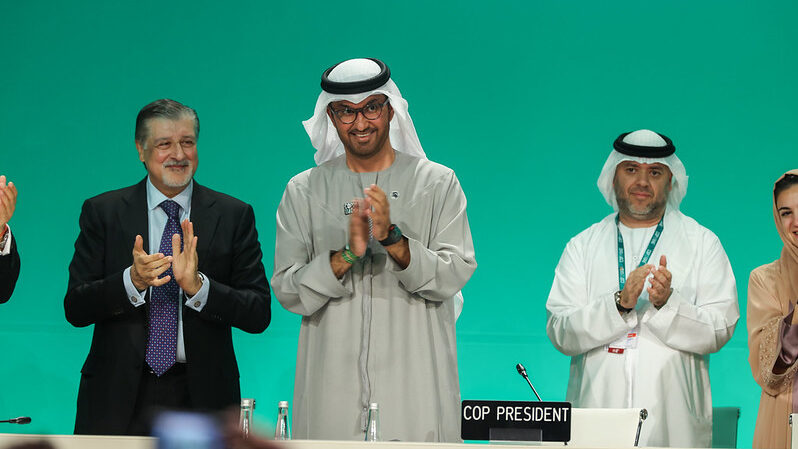Countries have agreed on the need to shift away from burning fossil fuels for the first time in the UN climate process, at Cop28 talks in Dubai.
The “UAE consensus” did not go so far as to call for a “phase-out” as more than a hundred countries wanted. It settled on “transitioning away from fossil fuels in energy systems”.
Still, after coal was targeted for a “phase-down” two years ago in Glasgow, it extended that scrutiny to the oil and gas sector.
Cop28 president Sultan Al Jaber brought down the gavel on a deal late Wednesday morning, one day into overtime. “We have language on fossil fuel for the first time ever,” he said, to applause.
One delegation not joining in the ovation was Saudi Arabia. Oil-exporting states fought hard against the phase-out language that appeared in earlier drafts.
Many emerging economies were also wary of signing up to quit fossil fuels, given limited finance on the table to support cleaner development paths.
Dubai deal: Ministers and observers react to the UAE consensus
Samoa complained they were not yet in the room when the deal was adopted. Small island states had pleaded for a rapid fossil fuel phase-out to hold global warming to 1.5C, seen as critical for their survival.

Excerpt from the global stocktake text agreed at Cop28 addressing fossil fuels
The energy package included a push to triple renewable capacity and double the rate of energy efficiency improvements by 2030. It called for accelerating the implementation of technologies like carbon capture, utilization and storage, “particularly in hard-to-abate sectors”.
Controversially, it cited a role for “transitional fuels”, which can be taken to mean fossil gas.
Attention now turns to the next round of national climate plans which, the deal says, should align with limiting global warming to 1.5C. But the pathway to do so is vanishingly small.
